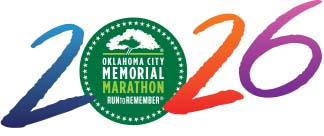The Oklahoma City Police Department’s Triad program has been around for close to 18 years. Triad is a program which provides a joint approach to crime issues which affect older citizens and provides the enhanced delivery of law enforcement services to our more mature population. Triad sponsors crime prevention and victim/witness programs for older persons, offers reassurance programs for older persons to reduce fear and provide moral support; provides a forum for law enforcement and the community to share needs, concerns, and develop solutions. TRIAD unites senior citizens, sheriffs and local police to identify problem areas for senior citizens in order to develop and implement community-wide solutions.
The Oklahoma City Police Department started the Triad program in November 2001. Sheryl Presley is the department’s Triad coordinator and runs the Triad groups in the metro. Triad North meets the second Thursday of the month at 1:30pm at India Shrine. Triad South meets the third Thursday of the month at 1:30pm at Woodson Senior Center 3401 S May, and Triad East meets at our Springlake Station (4116 N. Prospect) on the third Monday of each month at 10:00am (except January & February when the meetings are bumped to the fourth Monday of the month). There are no meetings in September & December. Each meeting typically features a guest speaker who provides informative information. Current scams and frauds targeting senior citizens are also discussed.
Tax season is a time when we see IRS scam ramp up. Seniors are targeted primarily because they are viewed as easy prey. Usually the scammer will call from a number they have spoofed to make it look like it is the IRS calling. The caller will usually say something like they are with IRS and you owe them money. The victim, thinking that it is the IRS, reacts out of fear and suddenly believes that they had better pay the IRS. First, the IRS will never call you if you owe them money. Second, the IRS will not threaten you and tell you that you have to pay them right now. If you owe money to IRS, they will send you a letter in the mail. If you choose to ignore it, they will send you another letter. If you still ignore the letter, then the IRS will turn your case over to a collection agency. This type of scam is something we go over in our meetings with our Triad members and talk to them about what to do. You can also report the call to the IRS impersonation scam line at 1-800-366-4484 or website at www.tigta.gov.
Scammers also use a ploy known as phishing to obtain your personal information. Phishing scams are typically carried out by a scammer sending you an email that claims to be from a financial institution, business, or a government entity like the IRS. The email usually asks for personal identifying information such as your date of birth or your social security number. It is not uncommon for the scammer to ask for your credit card number or the PIN from you debit card. Never give out this type of information to anyone who requests it in the form of an email. Again, the IRS will not send you an email claiming that you owe them back taxes.
This is but one of several IRS scams of which senior citizens should be mindful. Over the past few years, we have seen a trend of thieves stealing identities to fraudulently obtain IRS refund checks. It begins when a scammer assumes someone else’s identity and then fills out a tax a tax return in that person’s name. The IRS then sends the scammer victim’s tax refund check, and since they have already assumed
the victim’s identity, they simply cash the check and pocket the money. Please remember that if something seems suspicious, always err on the side of caution and call police.
A great way for senior citizens in our community to stay current on the latest scams and threats is to get involved in Triad. Having knowledge of scams and crimes targeting the elderly is a great way to help yourself stay safe.
If you have questions regarding Triad, please contact Sheryl Presley at 316-4336. Sheryl is also available at no charge to give presentations on scams, identity theft, mail safety, neighborhood safety, personal and home safety, holiday shopping tips, purse safety, and elder abuse.














